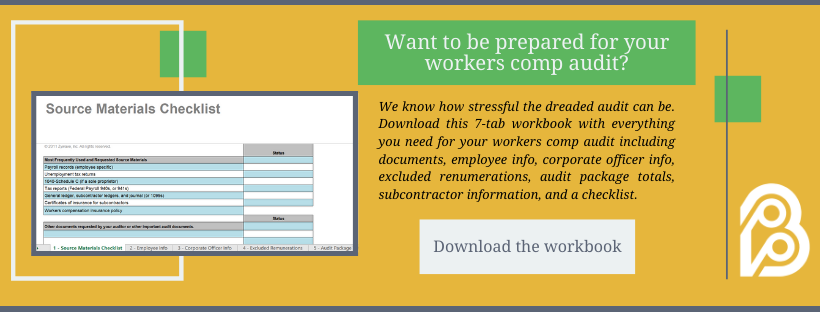Are Home School Teachers/Tutors Covered Under my Insurance?
Individuals & Families | Business Insurance | General Liability | Learning Center | Home Insurance | Workers Compensation | homeowners insurance | individuals and families | Personal Umbrella Insurance
2020 sure has been the year of getting creative — especially when it comes to schooling.
When the country shut down in March as a result of the COVID-19 pandemic, teachers, school officials and parents scrambled to come up with a plan for remote learning for the remainder of the school year. Now that school is back in session after summer break, parents, teachers, and students are taking even more innovative approaches to learning.
Some students are back in the classroom part-time, others are remote full-time. But some parents have also opted for hiring private teachers or tutors, or conducting “teaching pods” gathering a small group of students together under a home school instructor.
At Berry Insurance, most of us have kids taking a new approach to schooling this year. We’ve also had several clients inquiring if their insurance will cover their teaching pods or home tutoring.
Since this is obviously something we’ve never had to confront in the century we’ve been in business, we reached out to our carriers to find out if this type of situation would be covered under existing homeowners insurance or if it would require supplemental insurance. And well … we got some mixed answers.
Let’s dive into what we discovered.
What’s the insurance risk with home instruction?
Your home insurance covers a whole slew of incidents that could happen in your home.
It covers property damage, medical payments to others, and personal liability (if someone sues you for injuries).
The more people you have in your home (like students or teachers) the more you are at risk for one of these situations happening, and the more your insurance company will see you as a risk.
While we like to assume nothing will ever happen in our homes, it can and does, so you need to make sure you are prepared with the right insurance coverage.
Are home school instructors covered under homeowners insurance?
Many of the insurance situations we’ve had to confront during the COVID-19 pandemic haven’t been straightforward and well … neither is this one.
When we asked our carriers if home school instruction is covered under homeowner’s insurance, many said this type of situation wouldn’t be an insurance problem.
Given the pandemic, insurance companies know people are having to make teaching adjustments and are likely to be lenient during related insurance claims. However, some carriers said they would at least need to have the situation noted on file.
On the other hand, some carriers did not have the same outlook.
Certain carriers are treating this unique homeschooling scenario as essentially a daycare situation and are cancelling policies if they learn of it and not writing any new policies with that kind of exposure.
They did say that if the homeowners get a commercial liability policy that covers all the exposures associated with the education/daycare center with a minimum liability limit that at least matches the limit on the homeowner policy, they can renew the policies.
So whether or not your specific policy will cover this situation? We don’t really know. You’ll have to reach out to your insurance agent with your specific scenario to find out if you’re covered or if you need to make one of the following changes.
You might need a commercial liability policy
As we mentioned above, your insurance company might require you to get a commercial liability policy in addition to your personal liability coverage over your homeowners insurance.
Business general liability insurance is a type of business insurance policy that covers claims made against your business from someone who experienced bodily injury or property damage. It can also provide coverage for injuries sustained from your product, claims for libel, slander or defamation, and claims filed by your employees or other 3rd-parties.
Since hiring a teacher is technically a business operation, commercial insurance could be the only way to cover risks associated with the home teaching.
While the cost of liability insurance can vary, we estimate it would cost around $250 – $750 a year for a policy covering one teacher.
Commercial liability not needed? Our suggestion: personal umbrella insurance
If you don’t need a commercial liability policy, our suggestion is to get an umbrella insurance policy if you don’t already have one.
Sometimes known as excess liability or personal liability, umbrella insurance supplements a policyholder’s existing liability coverages, such as auto, homeowners, renters, and condo insurance. It offers an extension of the policyholders existing coverages.
Umbrella insurance covers the costs of damages or legal defenses arising from incidents leading to property damage or injury when the policyholder is considered responsible.
Specifically, it protects you and your assets if you are found liable for damages beyond what your underlying policies will cover.
Having an instructor in your home, or having other children learn in your home automatically creates additional liability risks.
If something were to happen and you were to be sued by the teacher or parents of other students, without umbrella insurance, you could be stuck out-of-pocket costs.
In our opinion, it’s definitely worth it to buy the protection, especially because it is relatively affordable.
A $1 million personal umbrella policy may cost between $160 and $300 per year.
As you increase policy limits beyond $1 million, the premium cost increases in smaller increments.
For example a $2 million policy might only cost 1.8 times the cost of the million dollar one (rather than double), a $3 million dollar policy might cost 2.55 times the million dollar policy (rather than three times) and a $10 million dollar policy might cost 8.9 times the million dollar policy (rather than ten times).
You may also want personal injury coverage
While it may already be included on your homeowner’s policy, if it is not, you might want to add personal injury coverage.
Personal injury is an optional coverage which provides protection if someone were to sue you for libel, slander, or defamation.
In today’s society (especially with the prominence of social media), the chances of these types of claims are much higher.
We recommend this coverage in general, but would especially suggest it if you are bringing teachers and other students into your home.
You probably also need workers compensation
If you have a nanny, tudor, teacher or something similar that you are paying to serve your family, you are technically their employer (unless they are employed by an agency), which means you need workers compensation insurance.
Workers’ compensation insurance covers medical payments and a portion of lost wages for employees who become injured or ill due to work-related causes.
It also protects the employer from liability for these work-related injuries or illnesses.
In Massachusetts, all businesses (this includes individuals who employ home teachers) are required to have workers’ compensation insurance for their employees. Without coverage, employees could sue their employer for injuries or illness sustained on the job.
For each person you employ, the base charge for workers comp is $141 per year. (With fees and state assessment charges, the total cost for one nanny on a $1 million policy is $285.)
Protect your children and their educators
We know you’ve already invested more than you should have had to into your child’s education this year, but don’t forget to invest in insurance to protect it all.
While your homeowners insurance might be adequate for your new homeschooling situation, there’s a chance you will need an umbrella policy, commercial liability insurance, or workers compensation.
And remember, how you need to change your insurance might not be the same as how the parents next door need to change their insurance. The best way to find out what you need is to contact your insurance agent so they can evaluate your specific situation.
Even without having a home school instructor, remote learning alone may prompt changes to your insurance. Read this article to find out how remote learning will affect your personal insurance.


.jpg)
